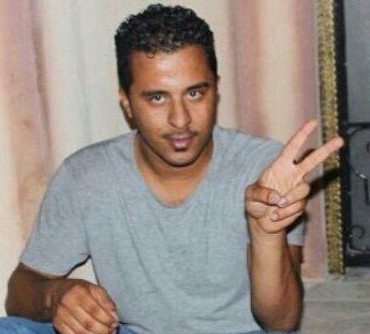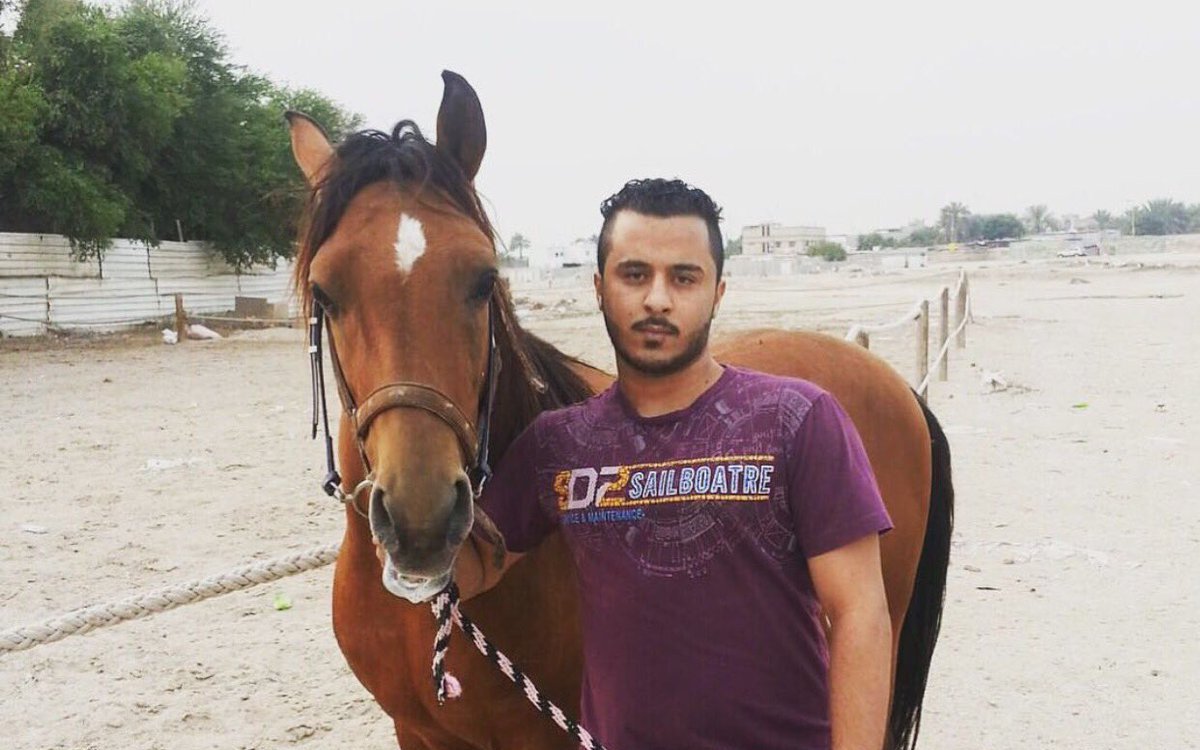
Fadhel Sayed Abbas Radhi is one of two long-term disappeared persons in Bahrain (the other is Sayed Alawi, whose case has previously been raised by ADHRB). Bahraini security forces under the authority of the Ministry of Interior detained Fadhel at his family home in Hamad Town on 28 September 2016. They presented no warrant authorizing his arrest or the search of the home, and gave no explanation as to why he was being taken into custody.
Bahraini authorities have withheld all information as to Fadhel’s location and condition since the moment he was detained. The Office of Public Prosecution refuses to disclose what charges are being raised against Fadhel, saying only that it is a terrorism case falling under special prosecutorial jurisdiction. This is a reference to the Office of Prosecution for Terrorist Crimes (Arabic: niyābat al-jarā’im al-irhābīyah), which was established under the 2014 amendments to Bahrain’s already highly repressive anti-terror law. Under the amended law, this new prosecutorial office is authorized to hold suspects for up to six months in pretrial detention. During this half-year of administrative detention the defendant is granted no right to appear before a judge. The behavior of the Office of Public Prosecution in Fadhel’s case indicates that, going beyond even these exceptional powers, this new division operates in a secretive manner, concealing all information about “terrorist” detainees from families and attorneys.
Fadhel has also become the test case for the expanded military jurisdiction authorized by constitutional amendment in March 2017. Fadhel will be the first defendant tried under this new jurisdiction. The details are opaque, but it appears that there have been military court proceedings in absentia which ordered an extension of Fadhel’s pretrial detention past the six-month mark authorized by the terrorism law. According to the state, Fadhel “has” an attorney, who will be summoned to defend him whenever the military trial gets under way, but in the meantime he is not being allowed to consult with his attorney, organize a defense, or contest his detention in any way. He has now been in this state of limbo for eleven months.
Although the March constitutional amendment is unprecedented, the use of military courts to try civilians is not an entirely new phenomenon within Bahrain. In 2011, military tribunals, known as the National Safety Courts, were used extensively as a legal mechanism of repression to quash the 2011 uprising, a tactic which was criticized in the report of the Bahrain Independent Commission of Inquiry (¶ 1700). Between the Office of Prosecution for Terrorist Crimes and the expanded jurisdiction of the military courts, Bahrain is creating a parallel, unaccountable legal system into which it can shunt any civilian using the broad pretext of “terrorism” charges.
Because nothing further is known about Fadhel’s fate – not even where he is being held – it is not possible to definitively assess his current condition. Relatives have received six brief phone calls from Fadhel since September 2016. No one, whether family member or attorney, has been allowed to see or visit him. Granting a detainee a curtailed phone call – usually a few minutes or less, during which they are monitored and cannot speak freely – appears to be a tactic Bahraini authorities use to deflect charges of incommunicado detention and enforced disappearance. Permitting a detainee to speak a few sentences on the phone under the watch of his captors allows the government to be narrowly accurate in claiming that a detainee has “been in contact” with his family, but by depriving both sides of the ability to communicate freely and by suppressing all information on the detainee’s status and whereabouts Bahrain strips the substance from the detainee’s right to communicate with the outside world. Fadhel is being held effectively incommunicado and, while his location is unknown and his well-being cannot be verified, he should be considered disappeared in line with the definition used by the UN Working Group on Enforced or Involuntary Disappearances: “[E]nforced disappearances occur when persons are arrested, detained or abducted against their will …, followed by a refusal to disclose the fate or whereabouts of the persons concerned … which places such persons outside the protection of the law.” The key phrase “outside the protection of the law” highlights the uniquely disturbing aspect of disappearances as a phenomenon: the disappeared detainee is absolutely at the mercy of the state. Given Bahrain’s routine use of physical violence during interrogations, considerable suspicion of torture inherently arises in Fadhel’s case and in all cases of incommunicado detention.
Enforced disappearance is a particularly notorious crime under international law, both due to its use by the most oppressive regimes of the twentieth century and because, as legal scholars have noted, it creates a secondary set of victims among those closest to the detainee, who are tormented by the uncertainty surrounding the fate of their loved one. Americans for Democracy & Human Rights in Bahrain marks today, the International Day of the Victims of Enforced Disappearances, to demand Fadhel’s immediate return to the daylight of legal accountability and public transparency. Secret charges and incommunicado detention are the tools of a dictatorship that does not believe it can make a credible criminal case against a political prisoner, not the methods of a democracy confronting terrorism. ADHRB calls on Manama’s closest democratic allies, the US and the UK, to press the Bahraini government to demonstrate its respect for the rule of law, starting with an immediate end to the enforced disappearance of Fadhel Radhi and Sayed Alawi.





